Forest School sessions for children aged 3 – 10
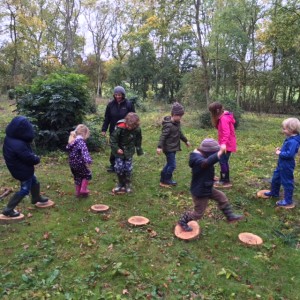 I’m going to be running a block of 6 Forest School sessions between June and July this year, suitable for children aged 3 – 10 years. Sessions will run on Sunday mornings between 10 and 12.
I’m going to be running a block of 6 Forest School sessions between June and July this year, suitable for children aged 3 – 10 years. Sessions will run on Sunday mornings between 10 and 12.
My name is Susan Collini and I am listed on the Forest Schools Association website as a Level 3 Forest School Leader, meaning I am qualified to run a Forest School.
I also have suitable insurance, DBS, First Aid and Food Handling related certification required to run Forest School and other outdoor activities for children and adults.
What is Forest School?
Forest School is a process where children learn about the natural world and experience self development through attending a series of sessions. You can read more about what Forest School is and isn’t.
In the past, over a block of 6 sessions, I’ve seen shy children develop their self-confidence and resilience. Children who present at the opposite end of the behaviour scale can be guided to experience the benefits to be gained from interacting with activities and other people in a calmer manner. To benefit a child’s self-development, attendance at Forest School needs needs a minimum of 6 sessions.
Attending one-off Forest School sessions where the children might build a den, toast a marshmallow and make something out of woodland materials over a few hours, with a group of other children they won’t see again, isn’t what Forest School is really all about.
Forest School is an inspirational process, that offers ALL learners regular opportunities to achieve and develop confidence and self-esteem through hands-on learning experiences in a woodland or natural environment with trees.
At Oxlip Wood our Forest School sessions take place in a truly wild wood. A place where most of the paths are made by the animals that live there provides a wonderful environment in which to immerse children in the natural world, enabling them to embark on journeys of self-discovery, something that’s at the core of the Forest School ethos.
Where we run Forest School
The Forest School sessions take place in Oxlip Wood, a privately owned 20 acre woodland that’s fenced and surrounded by fields and is located just outside the village of Sudborough in East Northants (between Thrapston and Corby).
The wood is undisturbed by human visitors for much of the year, to benefit the plants, insects, birds and animals that live there. This makes for a wonderful unspoilt place for children to explore and find the many species of birds, insects and butterflies that we build habitat for with the aim of attracting them to make the wood their home. For example, we have over 40 different species of birds that visit the wood.
Dates and cost for next block of Forest School sessions
The dates for the next 6 week block of Forest School sessions are 5th,12th, 19th, 26th June and 3rd, 10th July.
Under 5’s need to have one parent/adult carer to accompany them.
The total cost for the block of 6 sessions is £60/child with a reduction to £50 for any siblings.
There will be a limited number of places available, so I’d advise booking early as I usually soon have a waiting list.
What happens at Forest School?
Forest School is about personal development, gained through the Forest School sessions. Children play games, get involved in team-building activities, build dens and learn to make and cook over an open fire. The children are closely supervised by myself, a qualified Forest School Level 3 Leader, plus a team of volunteers.
My boys loved making new friends in an environment where they felt safe and valued. Both grew in confidence; the experience allowing them to to communicate with new people and express their opinions knowing they would be heard.
Naomi Cebula – 2015
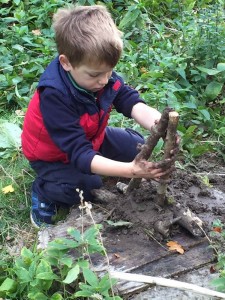 Sessions last for 2 hours between 10 a.m. and 12 noon, with a break for a drink and a snack half way through. Over the course of the six sessions the children will have the opportunity to experience a mixture of activities designed to
Sessions last for 2 hours between 10 a.m. and 12 noon, with a break for a drink and a snack half way through. Over the course of the six sessions the children will have the opportunity to experience a mixture of activities designed to
- Increase observation skills and awareness of the natural world
- Build self-confidence to make decisions without adult intervention
- Develop decision making taken with appreciation of risks involved
- Encourage creative skills
- Build social skills
- Develop verbal skills and speaking with confidence
- Develop a community spirit
- Learn about different ways of supporting others in the group
- Have lots of fun
Both of my boys loved being out in the woods enjoying the freedom of doing activities that interested them.
They both can’t wait to hear about the next block of Forest School sessions you’ll be running.
Cara Kemsley – 2015
Forest School helps children learn to manage risk
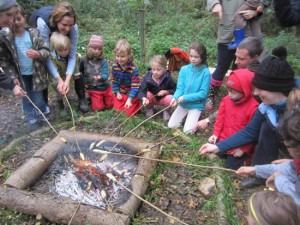 The children are not just let loose to run wild in the woodland. Rather, they are provided with opportunity to be involved in activities designed to expose them to incremental levels of risk, according to the age and observed physical and cognitive abilities of individuals.
The children are not just let loose to run wild in the woodland. Rather, they are provided with opportunity to be involved in activities designed to expose them to incremental levels of risk, according to the age and observed physical and cognitive abilities of individuals.
Encouraging children to support one another, the more able and confident helping the less confident is a great way to encourage support and empathy skills, also building self-confidence and self-esteem.
For example, children don’t get let loose with building a den until they have demonstrated that they have sufficient awareness of those around them when they’ve carrying sticks around (no-one wants to be poked in the face with a stick, do they?)
Similarly, working with fire starts with games to reinforce group protocols to follow when there is a fire lit in the middle of the Forest School circle, the central place where everyone gathers to re-group during sessions. There are even established protocols that exist to determine how far the log seating is from the actual fire-site (all designed to minimise risk)
The role of the Forest School Leader
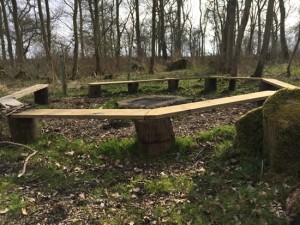 The role of the Forest School Leader is to reduce risk levels that could impact negatively on the well-being of individuals and the group as a whole
The role of the Forest School Leader is to reduce risk levels that could impact negatively on the well-being of individuals and the group as a whole
The Forest School Leader leads by suggestion, rather than dictates to the the children what they are going to do. However, while the children are essentially free to choose the activities they want to get involved with, the Forest School Leader will assess the likely risk level to that child or others before they can continue.
So, yes, children can do what they want, but they can’t if the Forest School Leader considers that the activity they choose to get involved with could lead to harm to self or others! However, once a child demonstrates they can manage the levels of risk associated with an activity, then they are given the opportunity to fully engage.The role of the Forest School Leader is to assess ‘readiness’ in individual who attend.
A typical Forest School session
After walking up the main track to the Forest School area sessions always begin with all the children and adults seated at the Forest School circle. Activities during the session often stem from starting points initiated by the Forest School Leader via a story, sounds, picture or from a group discussions and sharing of ideas.
The 2 hour session can provide opportunity for individual and group-based activities and games. There’s also opportunity for children to choose an activity that they particularly like to be involved in, one of the favourites being getting stuck into making mud sculptures on the ground and on the tree trunks. Children just love getting themselves dirty and we fully encourage them to do so, if that brings them joy!
A drink and a snack are provided at around half way through the session which usually involves a Penguin biscuit (a firm favourite with the children and adults alike).
Providing time for discussion and reflection as a group, seated around the Forest School circle, is an important part of the learning process for children. So too reflection on each session by the staff, after the children have gone home, aids learning about individuals, what went well, what didn’t and what could be improved. Forest School is an ongoing learning process for everyone involved!.
Find out more about how Forest School could benefit your child
Here’s some links to more information about Forest School, what it’s about and how it could benefit your child or children.
We’re on Facebook, so do pop over and take a look and ‘Like’ our page
http://www.forestschoolassociation.org/location/susan-collini/

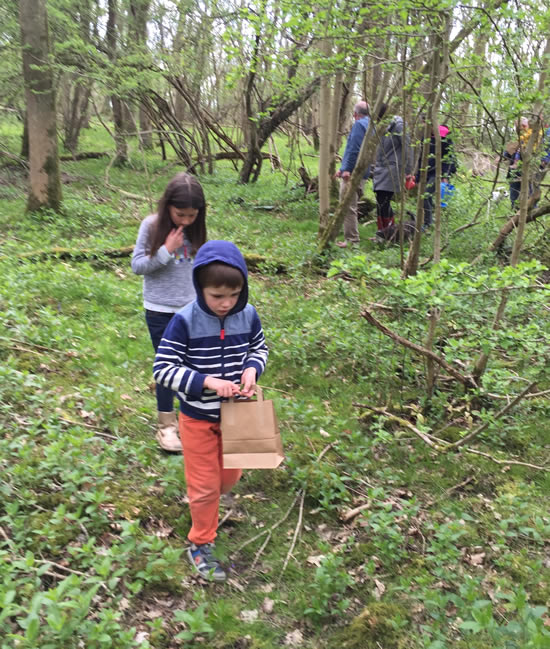
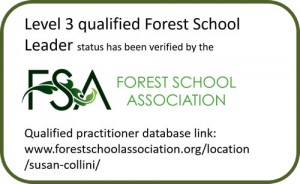
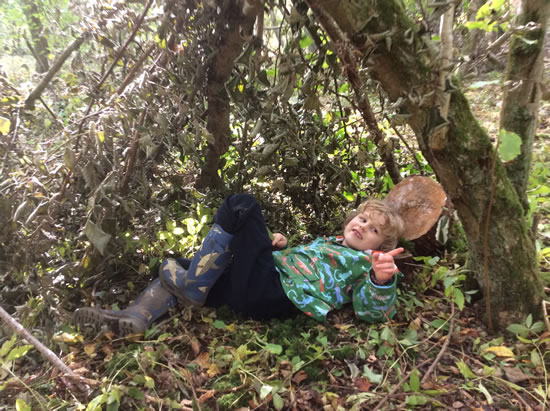
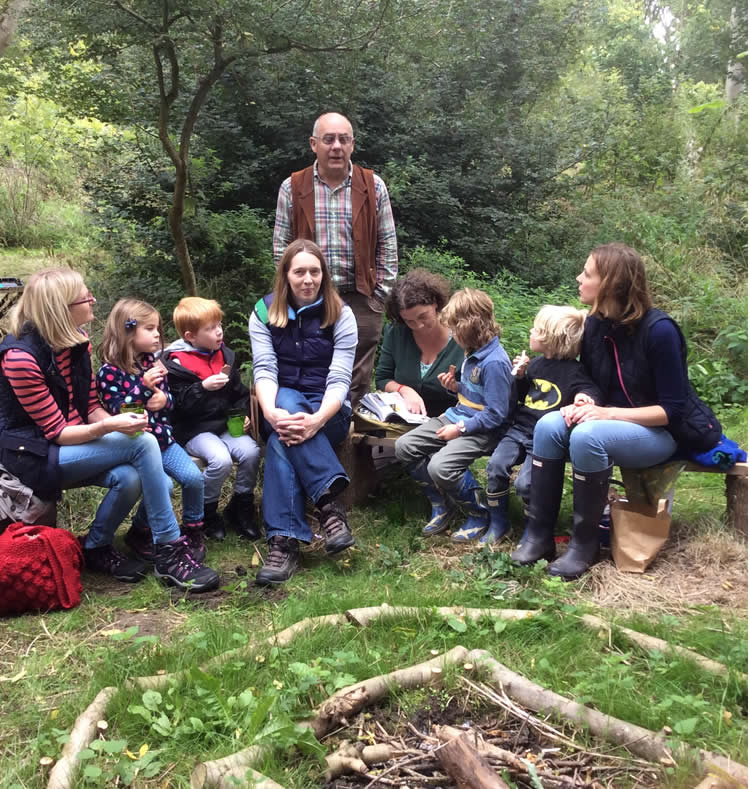
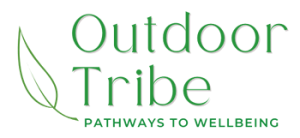
Recent Comments